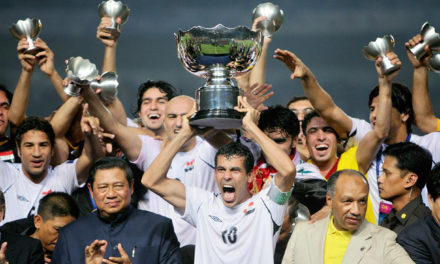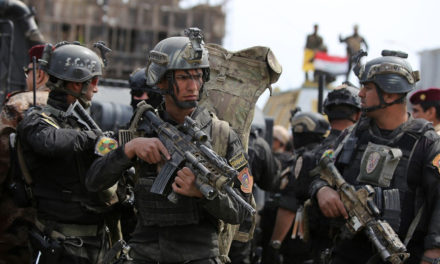The nomination of Dr. Barham Salih is a unique opportunity for the rebuilding and reconciliation process in Iraq. He is respected across different political factions, shows diplomatic skills, and credibility essential in facilitating the formation of the next Iraqi government after being elected for President.
Across Iraq, Dr. Salih is known for his international experience, and for being a politician with vision. Michael Rubin, a research fellow at American Enterprise Institute in his monograph titled Kurdistan Rising, described Dr. Salih as the most talented and skillful Iraqi-Kurdish diplomat in Washington. It was during his premiership that the Kurdistan Region of Iraq was booming with a strong economy that saw the development of real estate. Hundreds of thousands of people rebuilt their homes, thousands went abroad to continue their studies, and many started small entrepreneurial projects thanks to his good governance and meritocracy.
Educated in the United Kingdom with a Ph.D. in statistics and data, Dr. Salih has held several governmental and diplomatic positions. He is known for his experience in governance, transparency and fighting for justice. These are essential traits that are indispensable for the phase of rebuilding post-Daesh Iraq.
Even though the position of the President of the Republic of Iraq is mostly ceremonial, the President is endowed with certain executive powers in Iraq and can play important roles. The constitution specifies the characteristics for the post of the President; namely that he or she must be of good reputation and political experience and well known for integrity, righteousness, fairness, and loyalty to the homeland. The President is the symbol of the unity of the country and represents its sovereignty, safeguarding the constitution and the preservation of Iraq’s independence, unity, and security. Many believe that Barham’s reputation, political demeanor, and balanced stances enable him to implement these roles of the Presidency.
As Barham Salih became the sole Kurdish candidate of the Patriotic Union of Kurdistan (PUK) for Presidency of the Republic of Iraq, the Kurdistan Democratic Party (KDP) is the only obstacle for Barham Salih’s nomination as they contest his candidacy. Contrary to some media reports, Salih has not won Barzani’s blessing for the Iraq Presidency nomination because of an age-old rivalry and animosity between the PUK and KDP. The latter has nominated Fuad Hussien as its candidate for the Presidency. Nevertheless, observers believe that Hussein has little chance of winning this contest, as Iraqi MPs do not favor the KDP as they unsuccessfully led last year’s Kurdish referendum. Barham Salih has always defended the unity of a federal and democratic government, whereas Fuad Hussien was an essential player in the camp that worked hard to divide and partition Iraq.
Most Iraqis, in addition to both Iran and the United States want to see someone lead Iraq as a mediator, rather than a nationalist, sectarian and or populist. Barham Salih is believed to be able to de-escalate the tension between Erbil and Baghdad, and among the Sunni and Shia people as well, being once the protégé of the late Jalal Talabani, who united Iraq and prevented further conflict. Hence, Barham Salih meets the qualifications that the people and also regional allies would prefer in an Iraqi to become a President.
Last year, Barham Salih wrote an article in the Financial Times in which he outlined his vision for good governance in Iraq. He argued that the political system installed after the overthrow of Saddam Hussein has failed and that Iraq is far from the liberal democracy many hoped for, himself included. Iraq, according to Salih is a near-kleptocracy, driven by partisan and ethno-sectarian division. In his vision, Dr. Salih wants a meaningful dialogue, negotiations between Erbil and Baghdad, and argues that it is Baghdad and not Tehran or Washington who should decide the nature of the government and future of Iraqis. During the height of Kurdish attempts for independence, he advised that the Kurds should see the merits of remaining part of a new federal Iraq. Barham Salih was also advising Kurdish leadership to work seriously to resolve the political, economic and governance crises afflicting the region.
Regarding oil and the economy, Salih argues that the vast oil wealth of Iraq should translate into a better standard of living for the population. The government must reduce the bloated public sector payroll. Barham Salih has a vision for resolving a rentier economy, coordinating public and private investment and partnership. He believes that reform is necessary to improve security and economic conditions, and in order to implement his vision, he needs the support of Saudi Arabia, Iran, and Turkey, with the U.S. and other global powers like the European Union and Russia who are other stakeholders in local, national and regional stability.
Many people in Kurdistan Region and the rest of Iraq hope that the political status and personality of Dr. Barham Salih serves the interests of all Iraqis, especially in this critical time for Iraq. New developments will be unfolding in the next few days as the Council of Representatives will elect, from among the nominees, the President of the Republic by a two-thirds majority of its members. As it stands, Salih has the highest chances of becoming President.

Pshtiwan Faraj
Dr. Pshtiwan Faraj is former National Consultant with the United Nations Assistance Mission for Iraq. He formerly worked with the American Enterprise Institute. He has a Ph.D. in cultural studies of the War Against Terrorism at Brunel University, London. Since 2005 he has taught at several universities in the Kurdistan Region of Iraq.










